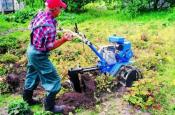Search
Login
How to choose an electric heating boiler. Installation of an electric boiler
It is widely believed that electric boilers are not cost-effective. In fact, this is far from the case. If they were not cost-effective, the world's leading manufacturers of heating systems would simply stop developing and releasing this type of equipment. In addition, gasification at home is not cheap. Therefore, if the house is not gasified, then there is no alternative to an electric boiler. So, we will buy. But the question is, which one? What types of electric boilers exist at all, and by what criteria should I make a choice? We will talk about this below.
Content
- Types of electric boilers and their distinctive features
- Electric heating boiler, how to choose?
- DIY electric boiler installation
Types of electric boilers and their distinctive features
All electric heating boilers on the market can be divided into 3 types: electrode, induction and heating elements. It is not advisable to consider the first two species as an option for purchase. Briefly explain why:
-
Electrode boilers, in spite of a successful marketing company, contain a number of minuses that cross out all any positive aspects. Judge for yourself, you need specially prepared water for the ionization process. It is necessary to constantly monitor the composition of the water, its characteristics will change, the currents consumed will change (you will pay more, but receive less heat or not at all), you need a reliable grounding system, etc.

-
Induction heating systems are generally difficult to attribute to electric boilers, in addition, they are not very cheap, and not everyone can afford a separate room for such an installation.

Therefore, let us dwell on the proven TEN boilers. The principle of operation of such electric boilers is simple. Electric energy is converted into heat, ordinary water is used as a heat carrier. The simplest boiler of this type contains a heating tank and a heater. In more complex systems, it is equipped with an expansion tank and an electronic boiler control system. Boilers produce two types: single-circuit and double-circuit. The difference between them is that electric double-circuit heating boilers provide the user with hot water as well.

Electric heating boiler, how to choose?
The choice of an electric boiler should not be based on advertising tricks. So, for example, the efficiency of all electric boilers is approximately equal to 95 98%. So, you have to choose according to the necessary technical parameters of the boiler and the rating of the manufacturer. Let's start with the technical parameters, there are only four of them:
- Boiler power, the most important characteristic. Its selection is carried out according to a simple ratio of 10 m2, 1 kW is taken. Those. for heating an area of \u200b\u200b70 m2 we need a boiler with a capacity of at least 7 kW. If we need a double-circuit boiler for hot water, the capacity should be at least 25% more. And in general, when heating a private house with an electric boiler, you should take power with a margin. This is due to a possible drawdown of the power supply network. For example, a boiler with a power of 7.5 when the voltage drops to 190V produces a maximum of 5.5 kW. This should also be taken into account.

- The presence of different power levels will save. For example, for a 6 kW boiler, these can be the following 2, 4, and 6 kW modes. Manufacturers are trying differently to reduce the amount of electricity consumed. This is usually achieved through the use of automation. So the easiest way is the thermostat in the boiler itself. After the temperature of the coolant rises to the value set by the user, the thermostat opens the power supply circuit of the heater. The most smooth temperature control and, accordingly, the maximum energy savings (up to 34%) are achieved in microprocessor-controlled boilers.

- Equipment. Some manufacturers provide a very rich package, it includes a circulation pump, an expansion tank, remote temperature sensors, etc. In fact, it is already an automatic mini-boiler. True, such a configuration is inherent only in the middle and highest price range.
- The last parameter is not directly related to the boiler, but it is extremely important to take it into account. Before buying a boiler, you need to know exactly how much power the power line can provide. To do this, you will have to visit the local office of the company serving the power grid.
Now for manufacturers. We will not recommend specific models; this is impractical. The characteristics of electric boilers are different, different fillings, different equipment here as they say to the taste and color of no comrades. In addition, not all models may be available in different areas of our vast Motherland. Therefore, everyone will have to do the selection individually, guided by what is written above and intuition. Of the manufacturers, the most flattering reviews were earned by Thermona, Bosch, Kospel, Protherm and Evan boilers.
And finally, a few more important nuances when choosing an electric boiler:
- Do not strive for compactness, it is not always beneficial. The small dimensions of electric boilers are achieved due to the greater energy intensity at the heating elements, which significantly reduces their service life.
- For comfortable savings, a boiler with a chronothermostat (pictured above) is best.
- It is very good when the boiler is powered in a pulsed mode, such electric boilers are not afraid of voltage drops in power lines.
DIY electric boiler installation

One of the main advantages of an electric heating boiler is the almost complete absence of special requirements for installation. Those. there is no need to equip a chimney, no coordination with the supervisory authorities of boiler supervision is necessary, no specially allocated premises are required.
This greatly facilitates installation. The only condition for installing an electric boiler is the availability of appropriate wiring. As we already mentioned, before buying, it is necessary to find out the available power of the mains. After that, it is necessary to find out the power of the meter, if it is less than the purchased boiler + other electrical appliances, it must be replaced. To do this, it is enough to contact the energy sales service.

If an electric boiler with a power of more than 10 kW, then, most likely, a three-phase power supply will be needed. If it is not, you will either have to take a boiler with a lower capacity, or pay for connecting the house to a three-phase power supply.
Next, we need wiring with the appropriate section from the meter to the installation site of the boiler. Sample data are shown in the table below. Be sure to take the stranded conductivity wires better, and accordingly heat less. And one more nuance, for a three-phase power supply, the cable cross section will be less, since the load is distributed more evenly on three wires.
|
power, kWt |
Current strength, A |
Wire cross section in mm2. |
|
4 |
7 |
2,5 |
|
6 |
9 |
2,5 |
|
8 |
12 |
2,5 |
|
10 |
15 |
4 |
|
18 |
27 |
6 |

Most importantly, carefully read the manual for connecting the purchased boiler. This will help to avoid errors and possibly keep the guarantee when connecting independently. By the way, it will not be amiss to ask the point of sale if the warranty will not disappear if the connection is not made by an certified specialist. If the warranty disappears, then you will either have to pay a couple of thousand rubles to a certified specialist, or look for another manufacturer. The sequence of actions when connecting an electric boiler can be seen below in the video.





